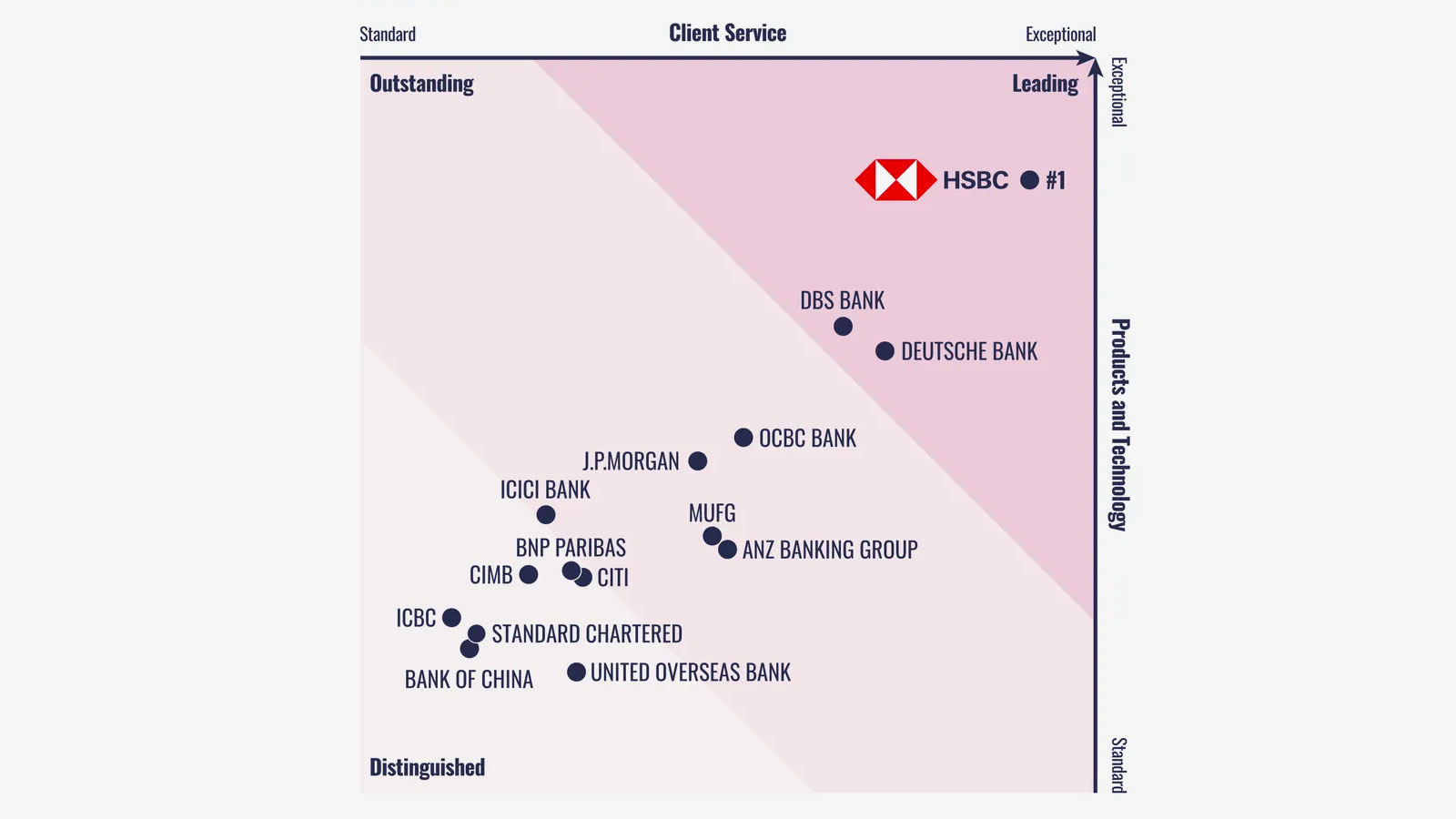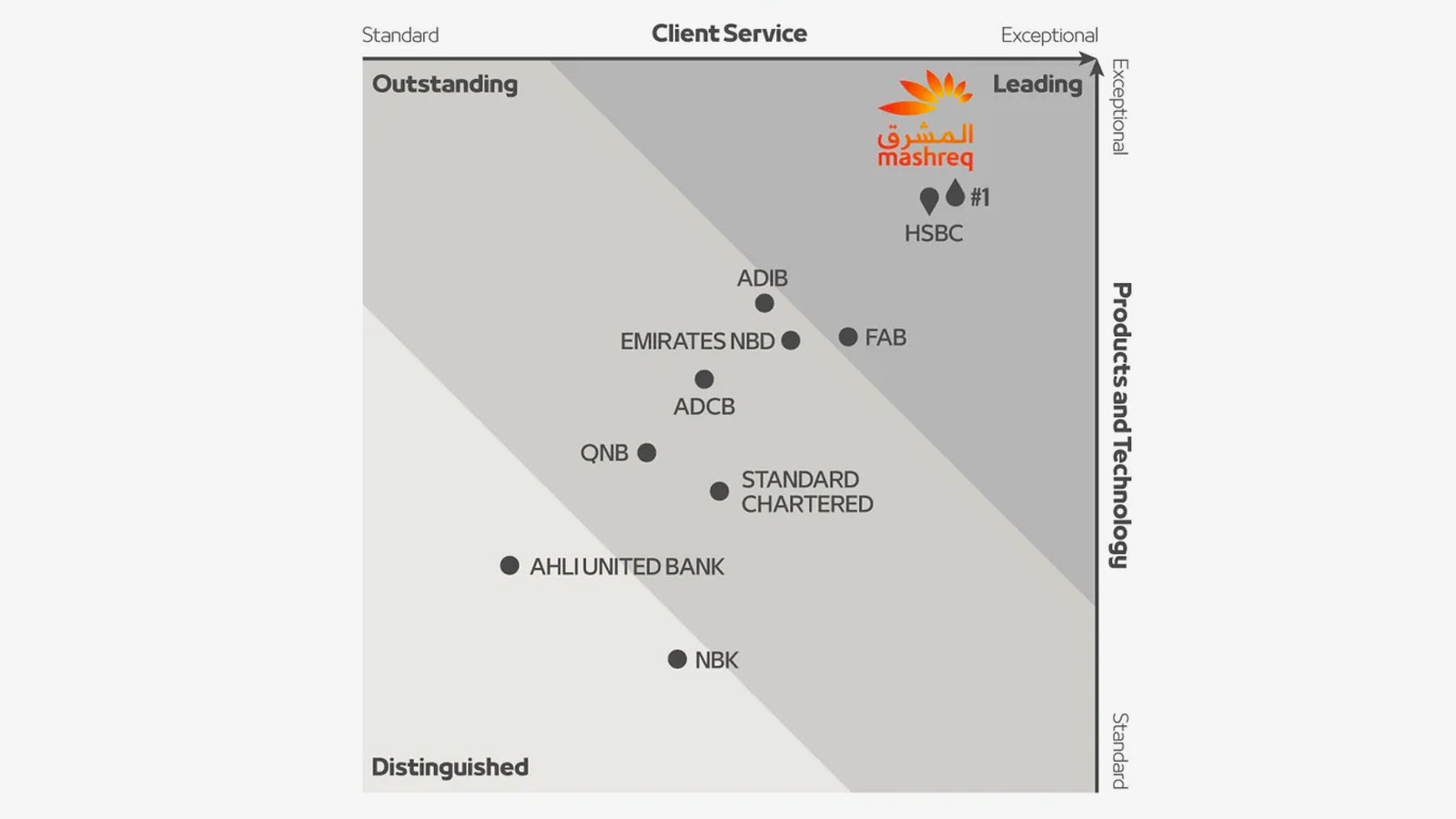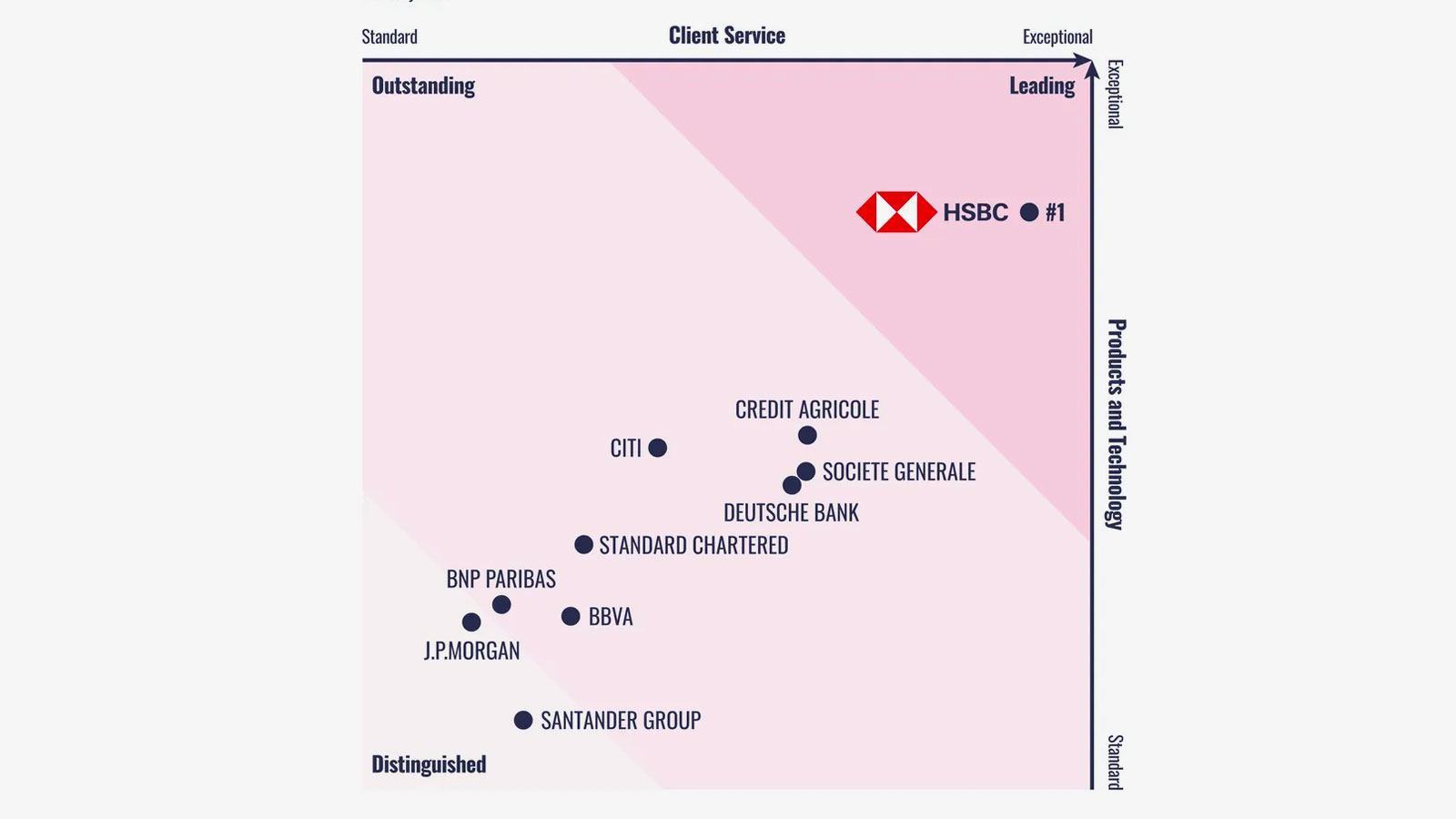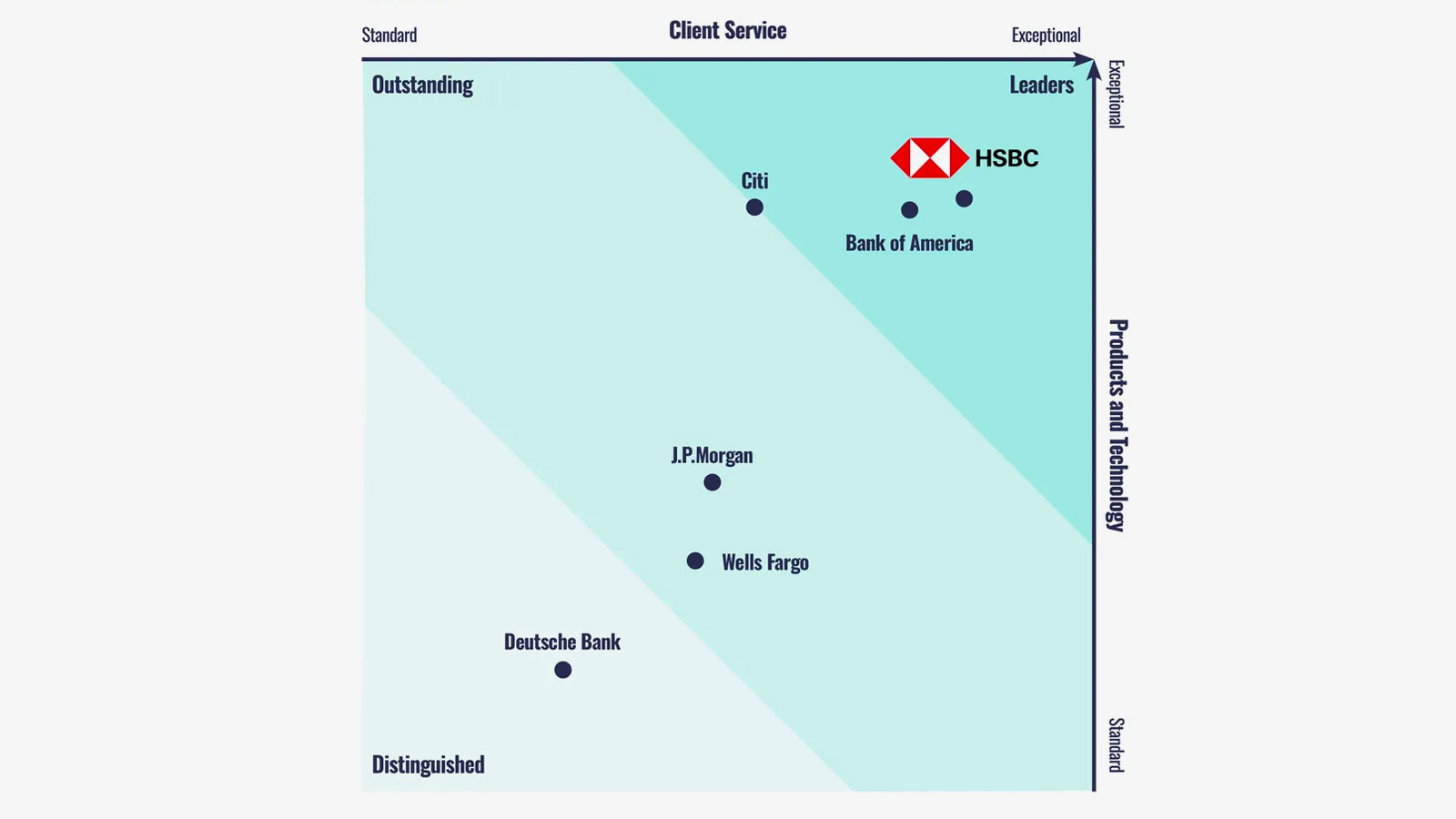CEE Company ranking 2006: Home-grown state success stories
Best Central and Eastern European Companies
Most convincing and coherent strategy By country
Most convincing and coherent strategy By sector
Central and eastern European company rankings methodology
CONSIDER THE FOLLOWING assessments of two companies operating in central and eastern Europe by a research analyst.
One company, the analyst says, “seldom replies to questions, and its management is reluctant to meet analysts, and they don’t really seem bothered about their share price”.
Writing about another company, the analyst notes: “Management really cares about shareholder value, their accounts are extremely transparent and they have a superbly communicative investor relations department.”
One of the companies is state-owned and only operates in CEE; the other is part of a conglomerate that sells in more than 160 countries, has a 14.5% share of the global market and employs more than 60,000 people worldwide. So which assessment refers to which company?
Shrewd readers might have already realized that the answer is not in line with conventional wisdom: the first comment is lambasting tobacco group Philip Morris International’s eastern European business; the words of praise are for CEZ, a Czech power producer that has triumphed in this year’s Euromoney poll of best companies in central and eastern Europe.
As acquisition-hungry external buyers swoop on the region’s most attractive companies, the expectation is that they will drag traditionally erratic levels of corporate governance up to international standards.
|
“We are in the final stages of negotiation for a coal power plant in Bulgaria and are examining further opportunities in Ukraine, Romania, Bulgaria and the Balkans. We would not rule out Russia” Petr Voboril, CEZ |
Indeed, Philip Morris’s parent company, Altria Group, protests: “We maintain a robust global investor relations programme. We are open to discussion with investors and institutions in all regions and welcome opportunities for improvement.” How, then, has CEZ beaten off such robust globe-trotting competition to convince analysts that it has the most convincing strategy, the most accessible senior management and is – despite all of Altria’s efforts – the most improved company in central and eastern Europe? CEZ’s chief financial officer, Petr Voboril, has an answer. “It’s because we have set up a clear strategy of growth,” he says, “and are determined to be seen as a company that is open and friendly. With the hiring of [former bond trader] Jan Brozik as head of investor relations, we have targeted access for investors as a key part of our policy.” Dan Karpisek, a research analyst at Austrian bank CA IB, confirms this improvement. “Brozik comes from an investment banking background and specializes in the energy sector. Before, when you rang them they would be helpful in getting back to you, but now he answers questions directly.”
Absolut comparison
As well as much-improved investor relations, CEZ has benefited from a stock options plan that ensures management and minority shareholders’ interests are clearly aligned. Employees are able to buy shares at a price that was frozen as soon as they became eligible for the scheme, and can then sell at the current rate. One analyst at a major European bank estimates that when Voboril exercised his call option he was able to buy at Kc240 and sell at Kc800. An equity analyst at a London brokerage explains CEZ’s aggressive policy of adding value by comparing it to Swedish state-owned alcoholic beverages group V&S, whose products include Absolut vodka. “Look at Absolut,” he says. “It’s 100% owned by the Swedish state, but it is relentlessly marketed all over the world. I think the countries in CEE align themselves more with this sort of model and less with the slightly sluggish western European attitude to state assets.” Certainly, the Czech government seems to agree that by linking management’s compensation to share performance through a stock options scheme, it is more likely to generate healthy returns if or when privatization does take place.
Having grown by 70% year on year to post record profits of Kc17.6 billion ($745 million) in 2005, CEZ is keen to take its recent M&A spree further. “We are in the final stages of negotiation for a coal power plant in Bulgaria,” says Voboril, “and are examining further opportunities in Ukraine, Romania, Bulgaria and the Balkans. We would not rule out Russia.”
CEZ is concentrating on consolidation in central and eastern Europe, and analysts cite the controlling influence of foreign owners and sheer pragmatism as the main reasons why emerging European companies are content to confine their activities to the region for the time being. There’s also a suspicion that some cultural barriers need to be confronted. “Turkey is not one of our targets for now,” says Voboril. “I’m not sure it’s reasonable for us to go into a different continent, where people have a different mentality, and their accession to the EU is uncertain. It’s not impossible, though: never say never.”
Although the best emerging European companies are not aiming for global status in quite the same way as their peers from, say, Latin America are, there are still plenty of opportunities to turn around neglected assets in the region.
CA IB’s Karpisek points out that this is a CEZ speciality. “Some of their recent acquisitions have been in areas where others weren’t paying too much attention,” he says. “They paid €238 per client for Electrica Oltenia in Romania, with Germany’s E.ON their only real competitor; the privatization of Electrica Muntenia Sud has attracted bids from 10 big European utilities and will reportedly cost the winner around €1,000 per customer.”
A dramatic turnround
CEZ is not the only state-run company buying cheaply in the region. Poland’s PKN Orlen, for example, having acquired a majority stake in troubled Czech petrochemicals group Unipetrol, has achieved an extraordinary feat in this year’s poll. It was reckoned to have the least impressive management in the region in 2005 but this year was voted in as having the second most convincing and coherent strategy. Given the high rate of management turnover and one sector analyst’s estimation of Unipetrol as “historically a disaster: never transparent and never accountable”, how can this dramatic swing in PKN’s fortunes be explained?
|
“Greater transparency is in the interests of both sides: if you don’t provide press releases, quarterly reports and access for investors, you’re going to pay a larger risk premium, so your cost of financing will be much higher” |
“It’s true that PKN has changed management too often and produced results that were a little disappointing,” says Lukas Dufek, a research analyst at Komercni bank. “However, they can cooperate with Unipetrol on the purchase of crude to make significant savings via large-scale orders, and I also think they can use Unipetrol’s sales experience in the Czech Republic to good effect.” Unipetrol was something of a bargain, analysts seem to agree, and if its new owners can establish continuity in the boardroom there’s every reason to hope they can turn it around. Foreign suitors
Young, upwardly mobile and ambitious companies such as CEZ and the new-look PKN Orlen have attracted their fair share of foreign suitors but for now these two at least are being kept at home by firmly protective governments keen to keep their crown jewels safe.
“A takeover of CEZ is out of the question,” says one analyst. “There are poison pills until at least 2010. It’s very obvious that the Polish government won’t let someone take over PKN Orlen either; both companies are regarded as being not for sale.”
These two companies have climbed to the top of the heap without foreign intervention but the rush of investment into CEE has definitely boosted the region’s economy and encouraged improvements in corporate governance.
Michael Discher-Remmlinger, portfolio manager at Allianz GI’s Deutscher Investment Trust, offers an investor’s perspective. “Eastern European countries that have acceded to the EU tend to have better facilities to serve investors,” he says. “We also see better standards of corporate governance in companies with a foreign ownership structure; too many local companies are seeking to finance themselves without sufficient reporting. Greater transparency is in the interests of both sides: if you don’t provide press releases, quarterly reports and access for investors, you’re going to pay a larger risk premium, so your cost of financing will be much higher.”
Poland’s BRE bank, which was second in the most improved category in the poll, is a good example of a company that has benefited from foreign intervention. “Before Commerzbank took a majority stake, BRE perhaps did too much proprietary trading, and it had poor disclosure and investor relations,” says an analyst at a US bank. “I think Commerzbank got fed up with the risks involved and put in a new team; now BRE is very successful at what it does. It was the first to move on pure internet-based retail, at a time when it wasn’t even clear in the west that this could be a profitable model, and it has worked out very well for the bank.”
Outperforming state-run favourites such as CEZ might soon be among the last domestically owned companies in the CEE region: there’s simply not that much left to buy. CEZ’s Voboril thinks there’s a chance that there will be a post-election reduction in the state’s stake in his company, which stands at 67%, but there’s no reasons to suspect that privatization is imminent. “My bet is that the state will keep a majority stake in CEZ at least until it has made some pension reforms, and they have not even been designed yet.” Where next, then, for central and eastern Europe?
Targets
The banking sector stands at the forefront of the modernization of the CEE market and it is here that the next level of consolidation might emerge. The western banks that made acquisitions in the region are becoming acquisition targets themselves – sector analysts have cited Austria’s Erste Bank and Belgian bank KBC as possible opportunities – and the murky world of Russian banking might benefit from the sort of rapid influx of foreign investment and management turnaround that has been seen in central and eastern Europe. It remains to be seen whether or not CEZ will be sold off by the Czechs, or indeed whether or not Philip Morris’s operation in the region can demonstrate the improvement it claims to be open to.



